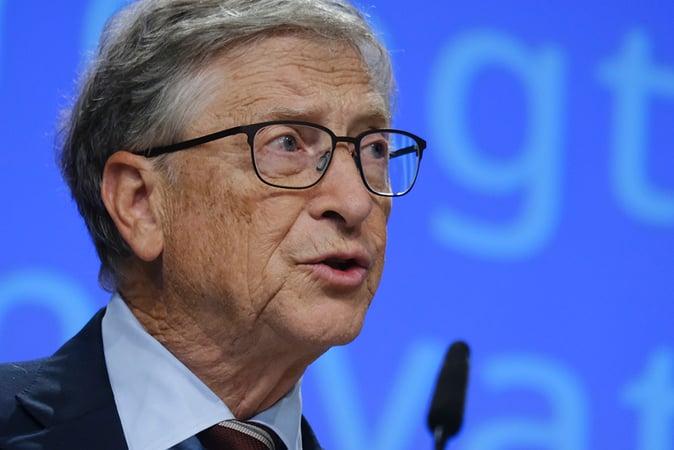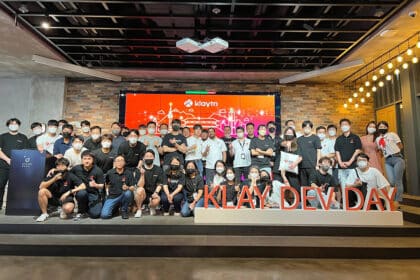Gates particularly emphasizes AI’s positive impact on productivity in fields such as programming, testing, and healthcare, where it could streamline processes and reduce paperwork for professionals.
American businessman and philanthropist Bill Gates has once again captured the attention of the world with his latest assertion that Artificial Intelligence (AI) could revolutionize the standard workweek, allowing humans to work just three days a week.
Bill Gates’ Vision of a Three-Day Workweek
Bill Gates, the co-founder of Microsoft Corp (NASDAQ: MSFT) and a prominent advocate for AI research shared his optimism about the rapid advancements in AI technology during a recent discussion with comedian Trevor Noah on the podcast ‘What Now’.
This revelation not only underscores the profound impact AI is expected to have on the future of work but also raises important questions about how society will adapt to such a transformative shift. However, Gates challenges the prevailing fear that AI will replace human jobs, asserting that it will instead “change it forever.”
According to him, if the transition to a more automated workforce is well-managed with sufficient government support, it could lead to a society demanding less manual labor and providing people with more leisure time.
The billionaire philanthropist envisions AI taking on tasks ranging from food preparation to daily chores, freeing up human resources for more creative and strategic roles. Gates particularly emphasizes AI’s positive impact on productivity in fields such as programming, testing, and healthcare, where it could streamline processes and reduce paperwork for professionals.
However, he recognizes the difficulties in completely comprehending AI, providing examples of basic mathematical blunders made by AI systems. While he views artificial intelligence as a vehicle for empowerment and constructive change, he is concerned about its possible misuse, such as the growth of deepfakes and cyberattacks.
AI’s Impact on Market Capitals and Concerns
A recent report from Coinspeaker highlighted that the ongoing AI boom has added $2.4 trillion to the market capitalizations of major tech companies in the US. Nvidia Corporation (NASDAQ: NVDA), in particular, has experienced substantial growth, entering the $1 trillion market cap club.
Despite these optimistic forecasts, some analysts predict a reality check in the coming year, anticipating practical challenges related to the cost and risks of AI, ethical concerns, and potential job displacements.
In response to the rapid developments in AI, the US government, led by Vice President Kamala Harris, engaged in a dialogue with CEOs from leading AI development companies. This meeting examined the responsibilities of governments and companies in mitigating risks associated with AI development, reflecting a growing awareness of the potential dangers posed by unregulated AI.
The European Union (EU) has also taken significant steps by passing the EU AI Act to oversee the development and application of AI in the region. This legislation positions the EU ahead of the US in terms of AI control and adoption, emphasizing the need for proper regulation to prevent the misuse of AI for illegal or criminal activities.




